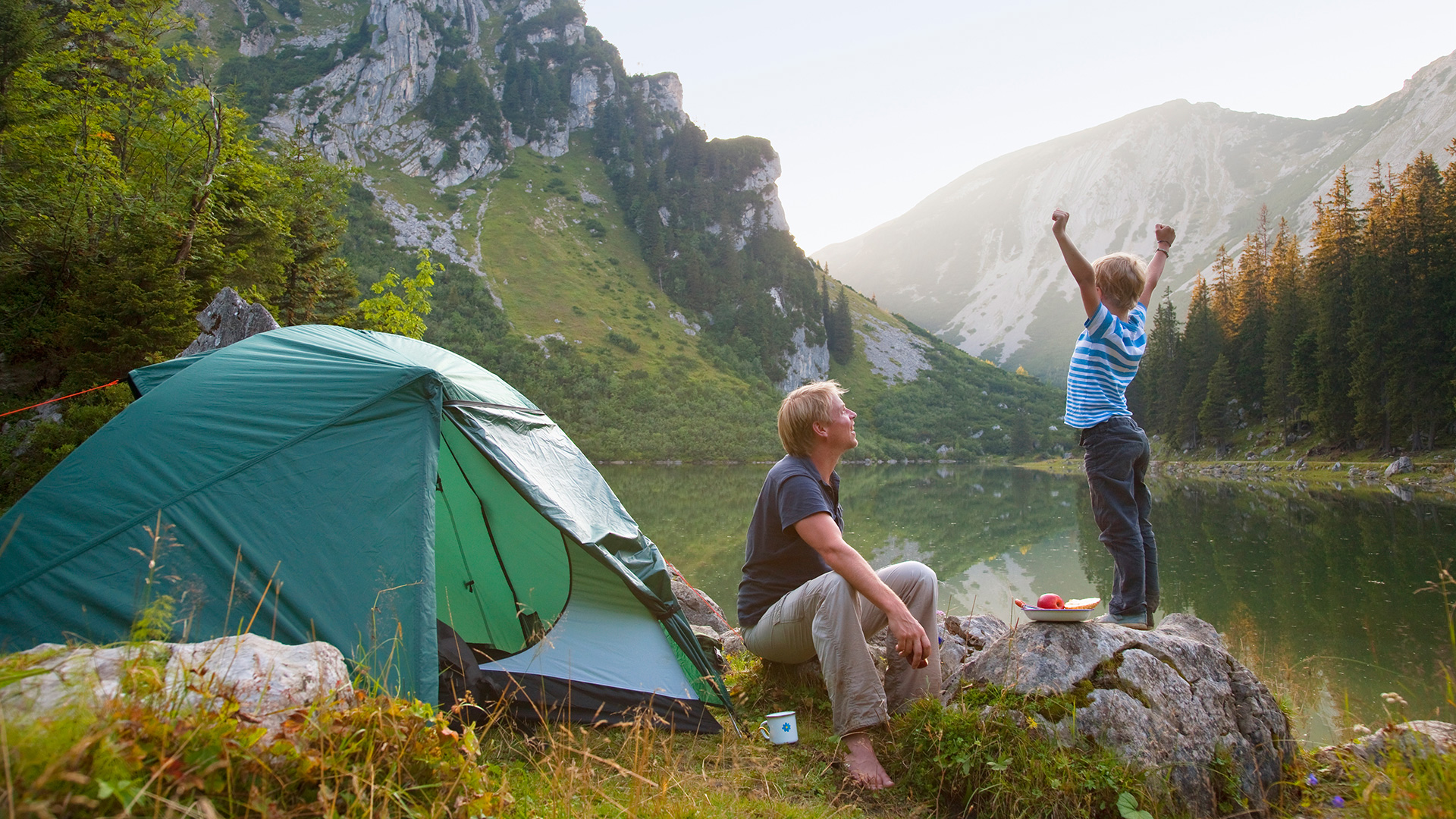What to pack for a spring camping trip
Thinking of embarking on a spring camping trip? Read this first


Is camping in spring in the UK a good idea? Sure! But you just need to be prepared and make sure you pack the right things. In 2020 and 2021, Covid restrictions meant that most campsites were closed over Easter, but this year it looks like camping is back with a bang – Camping and Caravanning Club reporting that bookings for its 100 sites are up 33% this year, when compared to Easter 2019.
The main thing to be mindful of when packing for a spring camping trip is that the weather is even less reliable than it is in the summer, there are some key rules to follow if you want your Easter camping trip to be a success, rather than an anecdote about the holiday that caused you to give up on camping altogether. Here's exactly what to pack for your spring camping trip.
1. Warm bedding
"If you originally bought all your camping gear for a summer holiday, then check your equipment specs before setting off on a spring camp," says David Scotland, camping expert and owner of camping equipment retailer Outdoor World Direct.
One really key thing to check is that your bedding is going to be warm enough – there's nothing more miserable than being cold at night. "Be mindful that even if temperatures hit the mid-teens during the day, they can still drop to under 5C in spring at night," adds David.
Check your sleeping bag's rating – 'one season' is for summer only, 'two season' should be okay for springtime, if the weather is pretty mild. Three season and up and you're golden, whatever the weather decides to do. If you need to invest in a new bag, our best sleeping bag guide has plenty of recommendations.
Check your camping mat is suitable too – some will provide more insulation than others (the R rating is bit is the part to pay attention to – an R value below 2.0 is for summer use, 2.0 to 4.0 will suit 3-season use). If you're car camping and have space, this might be the kind of trip to opt for a camping bed on – these chunkier options will keep you further away from the cold ground.
2. Clothing for any weather
The weather in April can run the gamut from blazing sunshine to snow. So bring clothing for any eventuality. "If you're just camping for a weekend, check the weather forecast and pack accordingly, however if you’re going for a week or more I suggest packing for different eventualities," says David.
Get all the latest news, reviews, deals and buying guides on gorgeous tech, home and active products from the T3 experts
For the cold and wet, pack a decent waterproof jacket and perhaps even waterproof trousers, alongside plenty of extra layers, gloves and a hat. For sunny weather, lighter layers, sunscreen and sunglasses.
3. Rainy day campsite essentials
If you've got a smaller tent, consider adding a gazebo to take shelter under in a spontaneous downpour – this is especially key if you need to be cooking outside your tent. And don't think you'll be able to get away with a picnic mat either; this is a situation where you want to bring your own camping chairs to keep you away from the wet ground. David suggests you might even consider a small portable heater if you've got electric hook-up in your tent.
Hayfever season starts now, so don't forget the antihistamines, and, as with any camping trip, pack some insect repellent.
4. A good tent
If you're potentially going to be stuck inside for some of your trip, it pays to invest in the best tent you can afford. Some inside space, and porches for drying wet clothing and stashing muddy boots can make a huge difference. It also, of course, needs to be reliably waterproof – David suggests looking for a tent that's at least 3000mm waterproof, to be safe if/when the heavens open.
A word of warning though, even if you've gone for a very hardy tent, it's probably not built for severe weather. "If there is a weather warning in place you must respect that," says David. "We often have customers call to say their tent was damaged in gale force winds – camping in those conditions is dangerous and even the most robust tents will struggle."
His advice, if a weather warning does appear during your trip, is to accept defeat, pack up your tent and seek more solid shelter. "As disheartening as it is, if there are flood or wind warnings in place, I highly recommend rescheduling your trip."

Ruth was T3's Outdoors and Wellness Editor from 2020 to 2022, covering hiking, camping and adventure sports kit, as well as mattresses, sleep accessories, yoga and general wellness. She's now a Homes Editor at sister site TechRadar, where she deals in all things air (vacuum cleaners, robovacs, fans and air purifiers), and hair (hair dryers, straighteners and stylers).